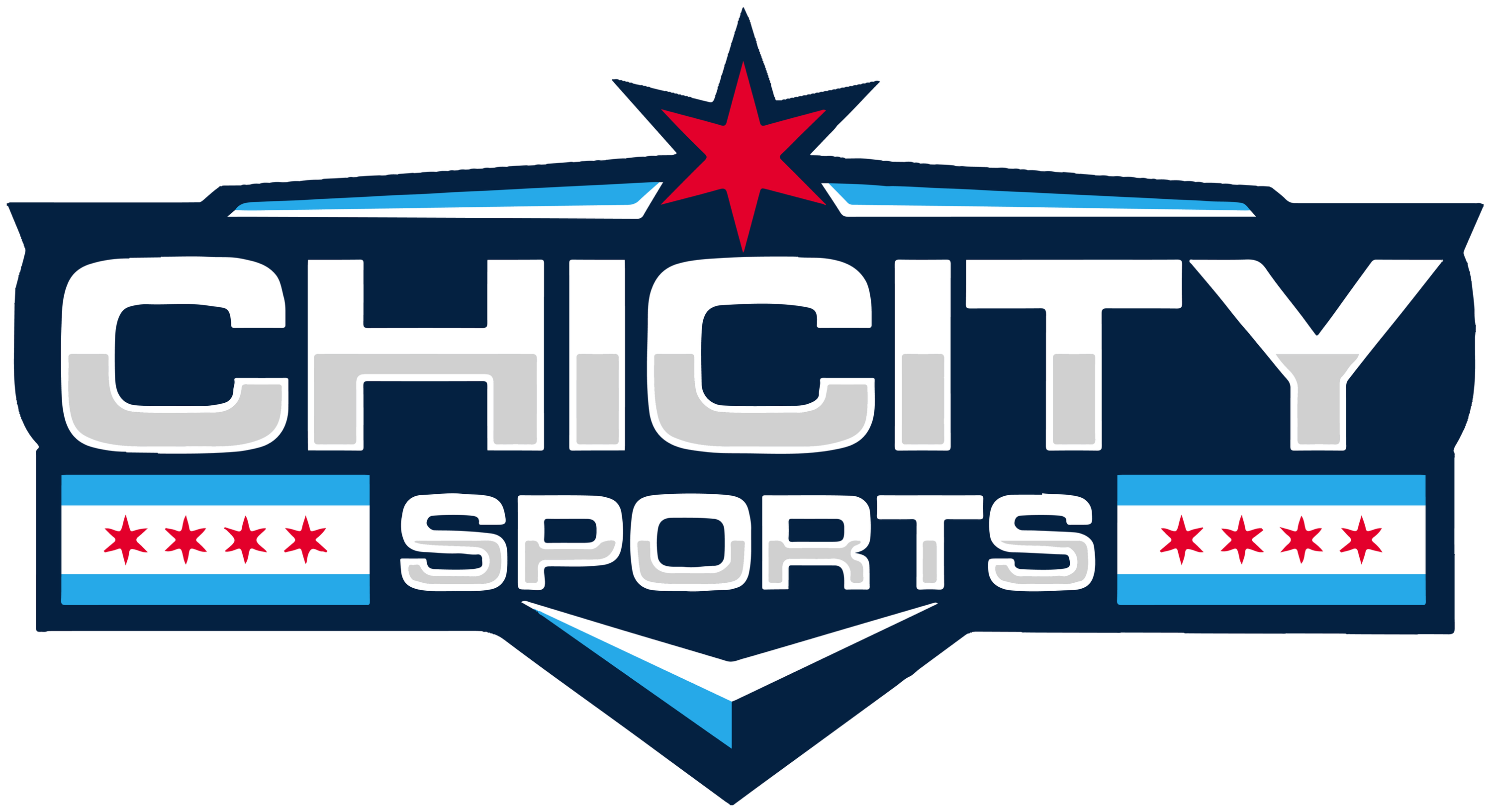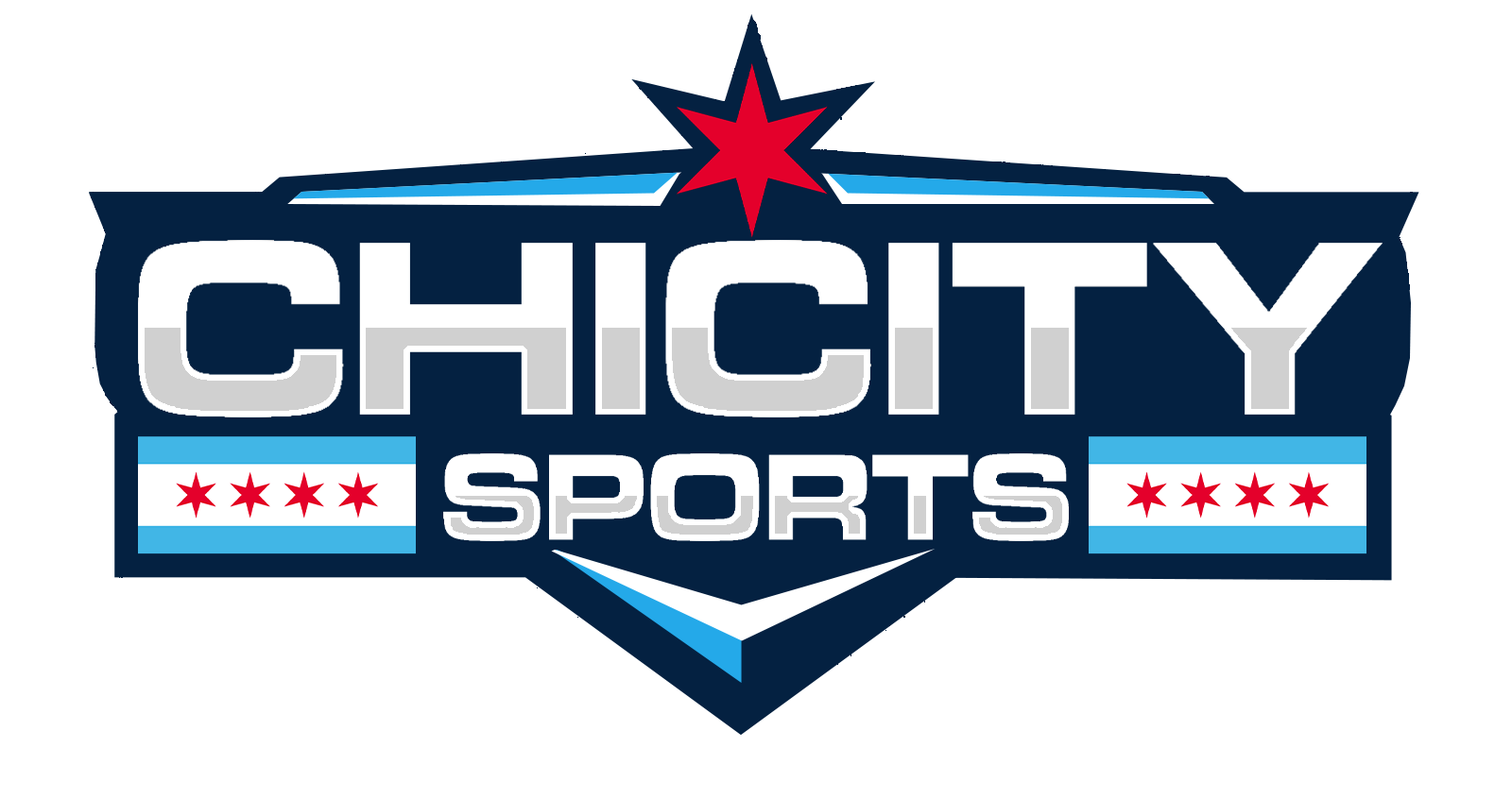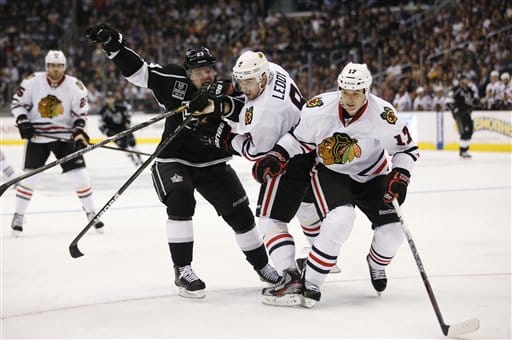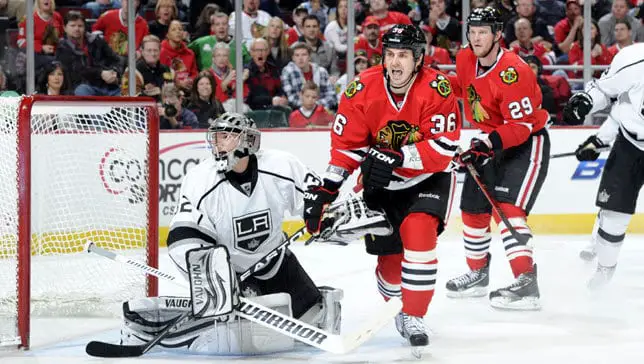After rallying back from a 3 – 1 series deficit, the Chicago Blackhawks managed to push through to the Western Conference Finals and will match up against the Los Angeles Kings Saturday afternoon at the Madhouse for Game 1. Both teams are coming off exhilarating, down-to-the-last-second Game 7’s that, no doubt, gave the teams some confidence going into the third round of the playoffs.
But both contenders would tell you that last round doesn’t matter and that the next match-up is the only thing on their minds. Indeed, both teams will have their hands full in all areas of the ice. Chicago’s second and third lines have been phenomenal both in the regular season and the postseason. LA’s defense has combined for 18 points through 13 games this postseason. Michael Frolik and Marcus Kruger have led Chicago’s Penalty Kill and only allowed 1 of 41 attempts. And then there’s Jonathon Quick.
Quick is arguably one of the best goaltenders in the league – his high level of play allowed him to lead his team to a Stanley Cup last season. This postseason, he ranks atop the NHL in goals allowed on average (1.70), save percentage (.948) and shutouts (3). He has the ability to see lanes and make stopping the puck look easy, whether or not there is a screen. He’s also got very strong legs – helpful when stifling a stuff attempt that may have caught him out of position.
Quick’s greatest strength, perhaps, is his confidence in the net which leads him far from the crease to cut down angles. It requires the shooter to make a snap decision, not always easy when a defenseman is hassling you. It requires patience, diligence and control to thwart Quick’s confident attack.
Jonathan Toews must be reviewing his crease-attack options in his sleep. One of Toews’ greatest strengths is lowering his shoulder to take the puck to the hole. He demonstrates control, poise and strength while charging to the net and fending off a defenseman. He can be patient enough to make Quick pay for his confidence. His teammate Marian Hossa can do the same – he is strong with the puck and can maintain control of the puck with more than one opponent hassling him. These two can make for a deadly one-two punch on the top two lines for Quick.
Chicago’s defense has allowed Corey Crawford to relax a little bit, especially in the final three games of the semifinals against Detroit. Crawford sits right behind Quick in the standings with a 1.70 GAA, a .938 save percentage and one shutout in the postseason. On average, he faces about 26 shots per game, certainly not a formidable number for a goaltender in the postseason. As marvelous as his numbers are, the defense in front of him has made a huge impact.
Duncan Keith averages over 24 minutes of ice-time per game, second only between these two contenders to Drew Doughty (27 minutes). Keith was also recently reunited with his former linemate from 2010, Brent Seabrook – who scored the overtime game-winner to send Detroit home on Wednesday night. These two skate hard (Seabrook) and fast (Keith) to allow for a pair that can dizzy an opponent.
Kieth and Seabs are not unlike LA’s defensive unit of Slava Voynov and Rob Scuderi, who have combined for 9 points (4G, 5A) in 13 postseason contests. These two can be tough to handle in the zone – they are aggressive and have great speed to join the rush if caught off-guard. Behind the top defensive line of Doughty and Robyn Regehr, Chicago’s offense may have their hands full.
LA’s offense, however, does not seem to pack the same punch as it did during its Stanley Cup run last season. Despite Richards’ 8 assists and Carter’s 5 goals, LA has played 1-goal games in 11 of 13 postseason contests – a stark contrast to the Eastern Conference (ahem, Pens). It’s not that the skill is not there or the lack of Jarret Stoll (though he is missed), it’s the lack of sufficient production. The ability to score shortly after the opponent scores kills momentum, but the ability to rack up a 2-or-3-goal lead fares much better. LA has not been able to put a stranglehold on its opponents in the postseason, and the Blackhawks have an opportunity to capitalize on that.
If it can be simplified to such a degree, this is what will determine if the Hawks can take out the defending Stanley Cup Champions:
- Is Quick working hard to stop the puck, or is the LA defense taking much of the heat (shot blocks, rebounds, etc.)
- Is the physical play frustrating either team? (LA averages 40 hits per game – 5 from Captain Dustin Brown)
- Is Chicago dumping and chasing into the zone or carrying it? *cough* Leddy *cough*
- Is Kane, Sharp or Hossa registering on the score sheet?
These questions should be kept in mind throughout the series because they are some of the biggest factors of determining who will move on to the Stanley Cup Finals. Quick can be exploited if he’s exhausted. Big hits can result in PPs and falling out of position. Puck control is key. And the big guys needs to be scoring – or at least assisting the little guys.
The Western Conference Finals begin Saturday at 3 p.m. CT. The full schedule with broadcast information is below.
For More Great Chicago Sports Content
Get the latest Chicago sports news, analysis, and breaking stories on the Bears, Bulls, Blackhawks, Cubs, White Sox, Sky, and more! Tap the star to add us to your favorites on Google News, so you never miss a story on your favorite Chicago teams.
Follow us on Twitter at @chicitysports23 for more great content. We appreciate you taking time to read our articles. To interact more with our community and keep up to date on the latest in Chicago sports news, JOIN OUR FREE FACEBOOK GROUP by CLICKING HERE




